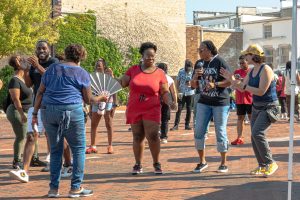No place for S.P.U.D.S. at NIU
December 7, 1987
Dave Bensinger’s letter to the Star published on Nov. 30 touched me deeply—so deeply I thought I would offer to begin a fund so Mr. Bensinger could retire from this community and play with his new group, S.P.U.D.S, in a place where he wouldn’t be bothered by people trying to learn how to activate their lives.
I have been trying to help young adults learn how to create their own futures for over thirty years, and believe me, Mr. Bensinger’s mindset gets in the way of those who are searching for ways to make their lives—and those of others less fortunate—a worthy experience. On our way to our laboratories in the social environs, we are forced to step over empty liquor bottles and drunks. The energy we spend dealing with those who feel no need to better themselves (or those who are caught in some of life’s debilitating events) should be used in sharing ideas with other “activists” and in planning collaborative activities to make positive change.
Personally, I’ve been fortunate in that I have participated in several worthwhile educational and social events. As a teacher, I’ve helped others to feel more worthwhile because they found their human presence hallowed by their work with others, especially work that involved teaching, sharing and risking ideas and self to catalyze change. And to see people as they feel their self-image growing in the process—ah, that is one of the great joys of teaching! Pity that one of our seniors has not experienced this hallowing development.
Do us a favor, Mr. Bensinger. Organize S.P.U.D.S., then take your entire group off on a drinking tour, and let the rest of us pursue our work as it is meant to be. Those of us who remain and who will be attracted to this campus will be able to use our creative energies to join a party, perhaps a political party seeking to reform or to conserve, but one without a commercialized dog leading us to drunkenness.
I do hope Mr. Bensinger will place his letter to the editor in his placement file so his prospective employers will be able to choose those people who will serve them well in their organizations and in their communities.
Walter Wernick, Ed.D.
professor
education






